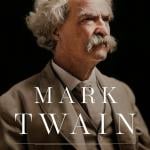GODSTUFF
THERE’S SOMETHING ABOUT MARTIN:
LUTHER, THEOLOGICAL ROCK STAR
In the world of religion, Lutheranism is about as sexy as a pair of worn-in, brown Hush Puppies.
Blame it on Garrison Keillor and his Lake Wobegon denizens, but Lutherans have a reputation for being a little bland. Nice, thoughtful, active in the community, good neighbors and intelligent. But . . . not what you’d call dangerous.
This Lutheran reputation, ill-gotten and ill-fitting or not, definitely doesn’t describe the father of Lutheranism (and of the Protestant Reformation, for that matter), Martin Luther. At least not according to a conference this week at Northwestern University that aims to reconsider Luther — a rock star of the religion world if ever there was one — 500 years into the Reformation he sparked in 16th-century Wittenberg, Germany.
“Luther has some really cool things to say to our contemporary situation of religion, of violence, evil and the hidden-ness of God,” said Christine Helmer, a Northwestern theology professor and Luther expert who is one of the organizers of “The Global Luther” conference, which runs Thursday through Saturday.
“There’s a great turn toward trying to figure out what language we should use to describe the religious experience — is it the language of reason? Is it the language of emotion?” Helmer said. “Luther’s experience — the experience of sin and grace, ‘amazing grace, how sweet the sound’; that whole experience of moving from blindness to sight, from being lost to being saved,” resonates as much today as it did when Luther nailed his 95 Theses to the Wittenberg church door, she said.
Luther sparked a theological and societal revolution from the boondocks of Wittenberg — a Catholic monastic-turned-renegade — at a point in history not dissimilar to our own.
“He has certain things to say about how life is lived in the face of death and in the face of evil; and how life is lived in relation to a God who is not as revealed as people would like to think God is,” Helmer said. “It’s time to look at Luther as someone who blasted open the medieval structures of thinking.”
No great vision descended on Luther in a dream, a pillar of fire, or a burning bush. His theological epiphany, like his conversion (in spirit, soul and intellect), was hard-won.
“People often think [Luther’s] breakthrough is something that happened overnight, but he spent 10 years in the monastery — throwing ink pots at the devil — with those ideas before they became a real, major historical force,” Helmer said.
Luther’s spiritual progress was sometimes tortured and often fraught with self-doubt. Like so many of ours.
I asked Helmer what might most surprise the uninitiated about Luther, and she said his understanding of the “hidden God.”
“Our culture and our religious ethos too often looks for the revealed God — the God who is known with absolute certainty — in our religion or in our culture in order to be evidence for what we ‘know’ to be the truth,” she said. “But I think God is much more mysterious. God is hidden in many of the events of human history. God is even hidden in the human soul.
“Luther really does portray a God who is hidden . . . and it takes a lot of work — a lot of spiritual work and a lot of intellectual work — in order to find the God that refuses to be captured by humans as evidence or as proof for human truth. I think that’s what’s most revolutionary about Luther.”
At a time when so many yearn for real change — spiritual, cultural or political — Luther has something to teach us.
About patience and hard work.
About saying what you’re not supposed to say.
About taking a stand, recognizing revelation when it happens, and telling the truth.
That kind of revolution is never bland. It’s downright dangerous.
For more information on Northwestern University’s conference, “The Global Luther: Reconsidering the Contributions of Martin Luther,” CLICK HERE















